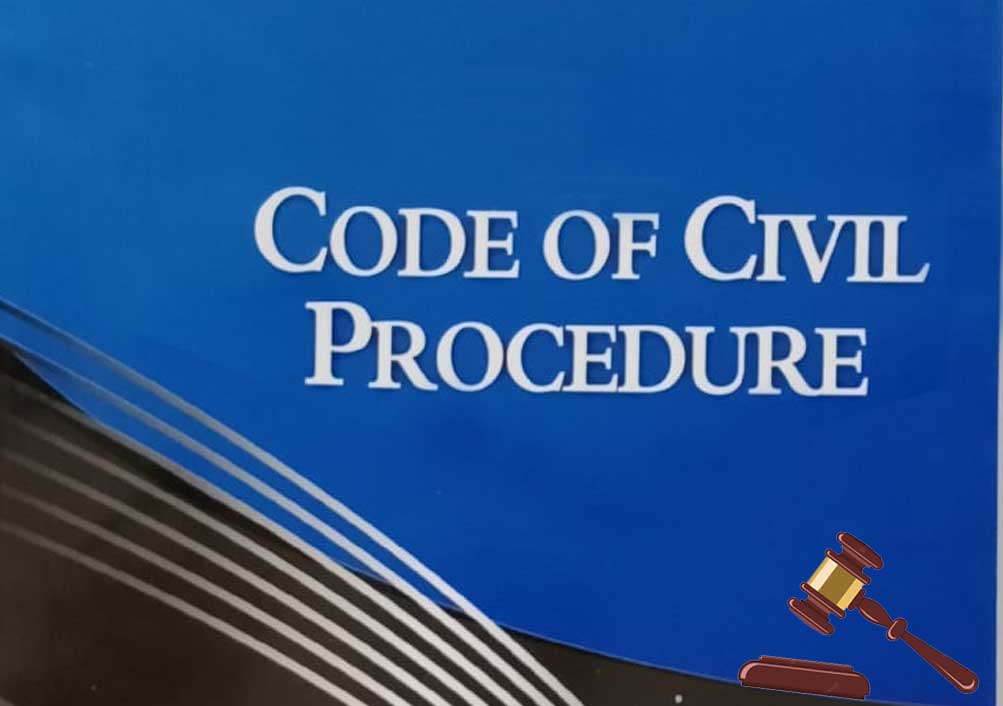In CA 4718 of 2022 - SC- Consumer Protection Act: Does Order 1 Rule 8 CPC apply when similarly placed complainants make a joint complaint seeking the same relief? Supreme Court responds in negative
Justice J.K. Maheshwari and Justice M.M. Sundresh [15-05-2023]

Read More: Alpha G184 Owners Association v Magnum International Trading Company Private Limited
Simran Singh
New Delhi, May 16, 2023: By way of a civil appeal, a Division Bench of the Supreme Court has held that Order 1 Rule 8 of the Code of Civil Procedure, 1908 (CPC) does not apply to similarly placed complainants who jointly made a complaint seeking the same relief.
“The need for the application of Order I Rule 8 of CPC, which speaks of a plaintiff representing the other public as a whole would be required only in a case involving a complaint under Section 12(1)(c) of the 1986 Act,” the bench noted.
In the matter at hand, the respondent being a builder tasked with the development of a housing project was alleged to have failed in its obligation to construct and complete the promised flats within the timeline agreed upon, with its failure to pay compensation for the delay caused at its instance.The appellants being an association formed by the allottees, approached the National Consumer Disputes Redressal Commission and filed a consumer complain on behalf of 54 allotted, subsequent to which few others joined as well.
The respondent filed a writ petition before the Delhi High Court, which was stayed by this Court vide order dated 20-08-2018. A complaint was also filed by the respondent with the District Registrar of Societies inter alia alleging that the aims and objectives enunciated in the bye laws of the appellant association were not in conformity with Haryana Registration and Regulation of Societies Act, 2012. The matter was referred to the State Registrar of Haryana which directed the appellant to amend its bye laws within 6 months indicating that any failure to comply would result in cancellation of the registration granted already. Aggrieved by the order, the appellant filed an appeal before the Registrar General, Haryana.
As nothing transpired on ground qua the proceedings before the Registrar General, Haryana, the appellant did make an amendment which was duly registered by the District Registrar, Gurugram on 08-11-2019. Before the National Commission, an additional affidavit was filed by the respondent in the review application, placing reliance upon the order of the Registrar General, Haryana which was pending adjudication before the High Court.
The proceedings were adjourned sine die, awaiting the outcome of the appeal before the Registrar General, Haryana. The appellant filed an application before the National Commission to place on record the amended bylaws with the order of stay, granted by the Registrar General, Haryana seeking a consequential prayer for the revival of the proceedings. The Registrar General, Haryana dismissed the appeal, finding no error in the order of the State Registrar, Haryana, though the appellant’s registration was not cancelled. Similarly, the appellant also filed an application bringing to the notice of the National Commission, the pendency of the writ petition and the stay application. By the impugned orders, all the matters along with the interlocutory applications were adjourned awaiting appropriate orders in the writ petition.
The Bench perused the provisions of Consumer Protection Act, 1986 (‘Act of 1986’) and the Consumer Protection Act, 2019 (‘Act of 2019’) and a catena of Supreme Court judgments. It stated that the Act of 2019 facilitated the consumers to approach the forums by providing a very flexible procedure. It was meant to encourage consumerism in the country and any technical approach in construing the provisions against the consumer would go against the very objective behind the enactment.
“The Act, 1986 is a social benefit-oriented legislation and, therefore, the Court has to adopt a constructive liberal approach while construing the provisions of the Act. To begin with the Preamble of the Act, 1986 which can afford useful assistance to ascertain the legislative intention, it was enacted to provide for the protection of the interests of consumers. Use of the word “protection” furnishes key to the minds of makers of the Act. Various definitions and provisions which elaborately attempt to achieve this objective have to be construed in this light without departing from the settled law that a Preamble cannot control otherwise plain meaning of a provision.”
The Bench observed that Section 2(b) of the Act of 1986, under which the present complaints were filed, defines the word ‘complainant’. It was certainly illustrative in nature requiring a broader, exhaustive and inclusive meaning and interpretation. Similar was the case with Section 12 of the Act of 1986 which specified the manner in which a complaint was made.
Supreme Court opined that Order I Rule 8 of CPC does not have any application when similarly placed complainants jointly make a complaint seeking the very same relief. In such a case, there was no question of Order I Rule 8 CPC being complied with as they do not represent the others, particularly when there was no larger public interest involved. Such complainants sought reliefs for themselves and nothing beyond and stated that “the issue pertaining to registration and the bye-laws had got no relevancy and a pedantic and hyper-technical approach would cause damage to the very concept of consumerism.”
In the view of the same, the appeals were set aside and the National Consumer was directed to proceed with the hearings, expeditiously.
Sign up for our weekly newsletter to stay up to date on our product, events featured blog, special offer and all of the exciting things that take place here at Legitquest.




Add a Comment